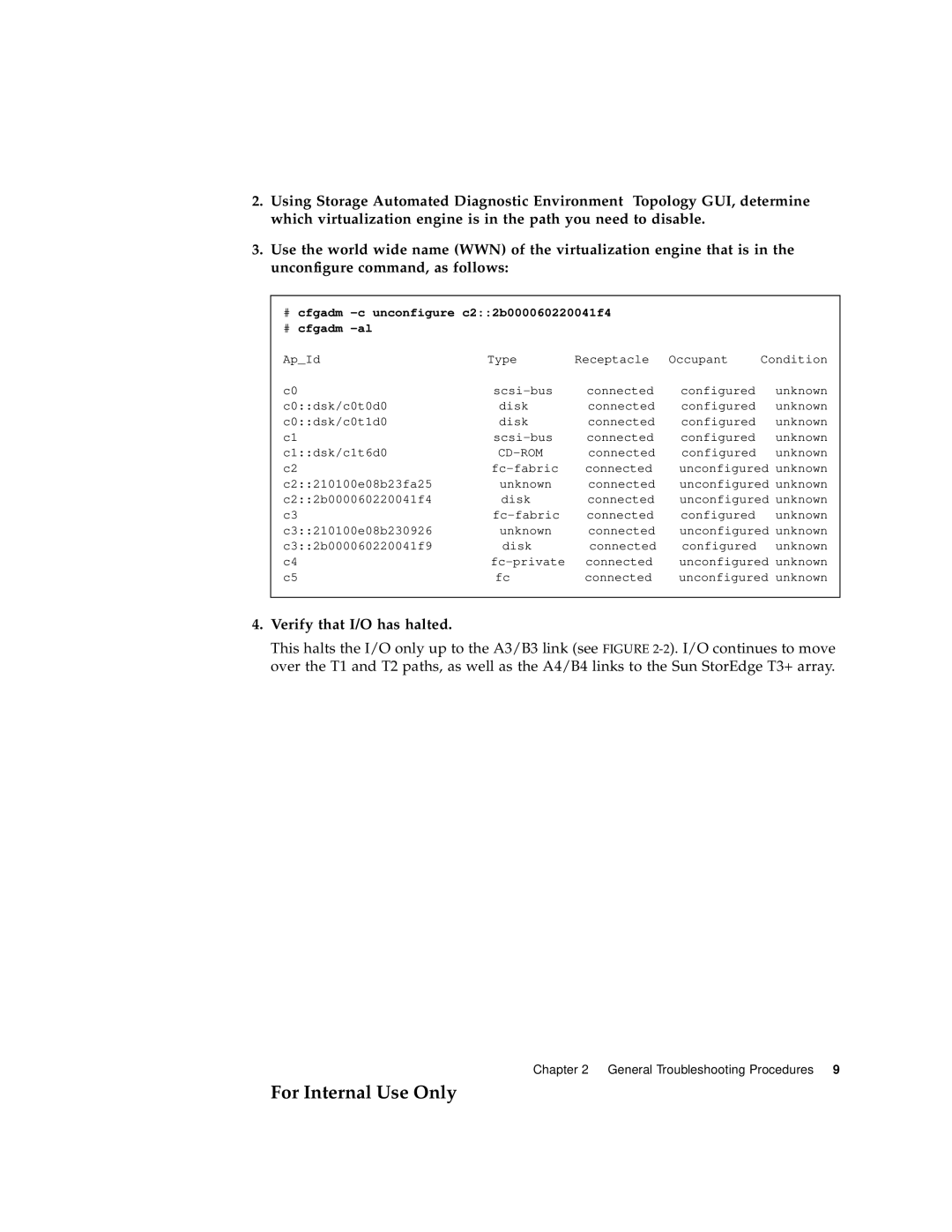
2.Using Storage Automated Diagnostic Environment Topology GUI, determine which virtualization engine is in the path you need to disable.
3.Use the world wide name (WWN) of the virtualization engine that is in the unconfigure command, as follows:
#cfgadm -c unconfigure c2::2b000060220041f4
#cfgadm -al
Ap_Id | Type | Receptacle | Occupant | Condition |
c0 | connected | configured | unknown | |
c0::dsk/c0t0d0 | disk | connected | configured | unknown |
c0::dsk/c0t1d0 | disk | connected | configured | unknown |
c1 | connected | configured | unknown | |
c1::dsk/c1t6d0 |
| connected | configured | unknown |
c2 | connected | unconfigured unknown | ||
c2::210100e08b23fa25 | unknown | connected | unconfigured unknown | |
c2::2b000060220041f4 | disk | connected | unconfigured unknown | |
c3 | connected | configured | unknown | |
c3::210100e08b230926 | unknown | connected | unconfigured unknown | |
c3::2b000060220041f9 | disk | connected | configured | unknown |
c4 | connected | unconfigured unknown | ||
c5 | fc | connected | unconfigured unknown | |
4.Verify that I/O has halted.
This halts the I/O only up to the A3/B3 link (see FIGURE
Chapter 2 General Troubleshooting Procedures 9
For Internal Use Only
